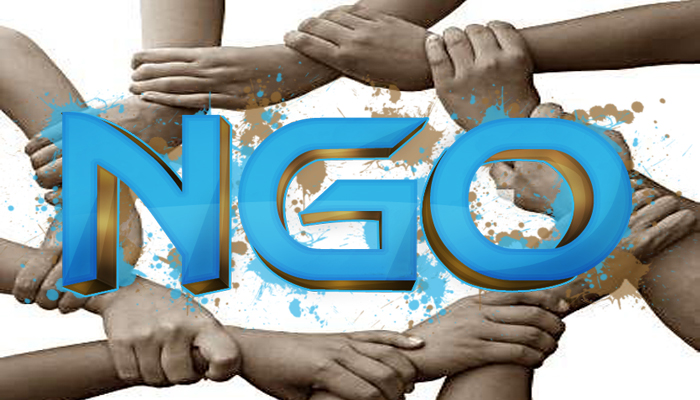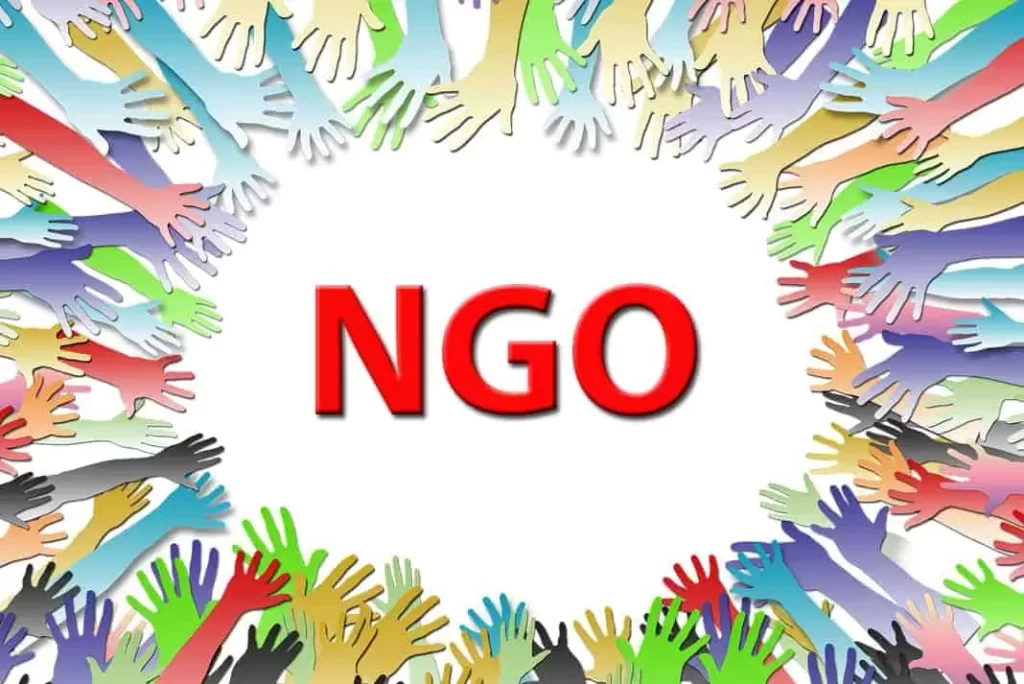Starting a non-governmental organization (NGO) is a dream for many people who want to give back to their communities.
When I started my NGO journey in Cameroon 5 years ago, it was a confusing process.
But after many attempts, mistakes, and guidance from legal experts, I finally got it right.
In this blog post, I’ll walk you through the process of registering an NGO in Cameroon, sharing my experiences along the way.
I remember sitting in my small living room, excited but nervous.
I had a vision to help young people in rural areas access education, but I didn’t know where to start.
Registering an NGO seemed like the logical first step, but the process felt overwhelming.
Thankfully, I learned over time that while the steps are many, they are manageable if you stay patient and organized.

What Exactly is an NGO?
Let’s start from the basics.
An NGO, or non-governmental organization, is an entity that operates independently from the government and is set up to pursue missions like education, healthcare, environmental conservation, or human rights.
NGOs are not designed to make a profit, but rather to serve a cause.
In Cameroon, the law allows for local NGOs and international ones.
They operate under strict regulations, but the good news is that NGOs enjoy several tax exemptions.
For example, they do not pay tax on donations or foreign aid they receive.
This is a great benefit if you’re trying to raise funds from international donors.
How to register your NGO in Cameroon
Step 1: Defining Your Mission and Drafting the Constitution
One thing I learned early on is that you need a clear vision for your NGO.
What exactly are you trying to achieve?
For me, it was about improving education for underprivileged children in rural areas.
You need to have a precise mission because this will guide everything else—your programs, your fundraising, and even the type of people you bring onto your team.
Once you have your mission, the next big task is drafting the constitution of your NGO.
This is like the rulebook that will guide how your organization operates.
It outlines the structure of the NGO, the roles of the key people involved (like the president, secretary, and treasurer), and the overall objectives.
I didn’t do this on my own; I sought the help of a lawyer because this document is extremely important.
If you don’t get it right, you could face issues when submitting your application for registration.
In Cameroon, the law requires that NGOs operate under strict governance.
You must clearly define roles and responsibilities, making sure that there’s a system of checks and balances in place.
When I was drafting my constitution, I made sure to include the responsibilities of the board of trustees, how decisions are made, and how funds would be managed.
It’s critical that you do the same because the authorities will scrutinize these details.
Step 2: Naming Your NGO and Appointing Executive Members
Now comes the fun (but tricky) part: choosing a name.
It sounds simple, right? Wrong!
You want a name that reflects your mission but isn’t already in use.
I spent weeks brainstorming and searching online to ensure that the name I chose wasn’t already taken.
You’ll need to check with the Ministry of Territorial Administration to confirm the availability of your chosen name.
Once the name is finalized, you need to appoint your key executive members.
At this stage, you’ll need a president, a treasurer, and a secretary general.
These people must be trustworthy because their names will appear in all official documents.
In my case, I chose people who shared my vision and who had a background in managing funds and organizing community projects.
You’ll need their ID card numbers, contact details, and signatures for the application process.
Step 3: Submitting Your Documents for Approval
After completing the constitution and appointing executives, it’s time to gather your documents for submission.
This step is both exciting and stressful because it’s the part where everything starts to feel real, but it’s also the part where you can make mistakes.
You’ll need the following documents:
a. An application for legalization addressed to the Senior Divisional Officer (SDO). You’ll submit this through the Divisional Officer (DO) in your area.
b. Two copies of the NGO’s constitution. Ensure they are signed and dated by the appointed officials.
c. Minutes of meetings (at least two). These should be board meetings where the constitution was adopted and where the organization’s name was decided.
d. A list of your executive members, including their full names, ID card numbers, contact details, and signatures.
e. Fiscal stamps (two, worth 1000 CFA each). These go on the application and the certified copy of your list of executives.
I made the mistake of not having enough copies of certain documents the first time I submitted my application.
I had to rush back to the office to make extra copies, which delayed the process.
So, my advice: double-check everything before submitting.
Step 4: The Waiting Game
After submitting your documents, you’ll need to be patient.
The Divisional Officer will forward your application to the Senior Divisional Officer, and from there, the application will be reviewed by several committees.
This process can take months, so don’t expect an immediate response.
During this waiting period, it’s essential to continue your NGO’s operations.
You won’t be fully recognized as an NGO yet, but you can still hold community meetings, organize events, and raise awareness.
The authorities will be monitoring your activities to ensure that your NGO is operating as outlined in your constitution.
Step 5: Obtaining Your NGO Certificate
Once the administrative authorities have monitored your activities for 2-3 years, you will be granted a full NGO certificate.
This is the final step in the registration process.
The certificate not only legitimizes your NGO but also allows you to access additional benefits, such as tax exemptions and duty-free importation of goods for humanitarian purposes.
I’ll never forget the day I received my NGO certificate.
It felt like I had finally made it.
After years of hard work, my organization was officially recognized, and I could now apply for grants, solicit international donations, and expand my programs.
Costs and Fees
Now, let’s talk about money.
Registering an NGO in Cameroon is not free, and it’s important to budget for legal fees and administrative costs.
Typically, the process costs between 500,000 and 1.2 million CFA.
This includes the lawyer’s fee for drafting the constitution, fiscal stamps, and other administrative costs.
You may also need to pay for notary services to certify your documents.
While this might seem expensive, it’s an investment in the future of your organization.
Why Register an NGO?
You might be wondering: why go through all this trouble to register your NGO? Well, registration provides numerous benefits:
-Credibility: A registered NGO is seen as more legitimate by donors, government agencies, and the public. It’s easier to raise funds when people trust that your organization is operating legally.
-Tax Exemptions: Registered NGOs in Cameroon are exempt from paying taxes on donations, foreign aid, and certain types of income.
-Access to Grants: Many international organizations only provide funding to legally registered NGOs.
-Duty-Free Imports: You can import goods for your NGO’s activities without paying customs duties, which is a huge plus if you’re bringing in medical supplies, educational materials, or food for distribution.
Challenges Along the Way
It wasn’t all smooth sailing for me, though.
I faced several challenges while trying to register my NGO.
The first was understanding the legal jargon involved in drafting the constitution.
If you’re not familiar with legal terms, it can feel like you’re reading a foreign language.
That’s why I recommend hiring a lawyer who specializes in NGO registration.
Another challenge was the waiting period.
The process can take up to three years, depending on how quickly the authorities review your documents and monitor your activities.
This can be frustrating, especially if you’re eager to start making a difference in your community.
But the biggest challenge for me was managing expectations.
Many people think that once you have an NGO, donors will come knocking on your door with loads of cash.
That’s not true.
Fundraising is a separate challenge that requires careful planning, networking, and continuous effort.
Is It Worth It?
Looking back on my ten-year journey, I can confidently say that registering an NGO in Cameroon is worth the effort.
It’s not just about having a legal entity; it’s about being part of something bigger.
You get to work with like-minded people, change lives, and contribute to the development of your community.
If you’re thinking about registering an NGO, my advice is simple: be patient, stay focused, and don’t be afraid to ask for help.
The process is long, but the rewards are worth it.
You’ll face challenges, but every step you take brings you closer to your goal of making the world a better place.
So, get started today—Cameroon needs more people like you!




